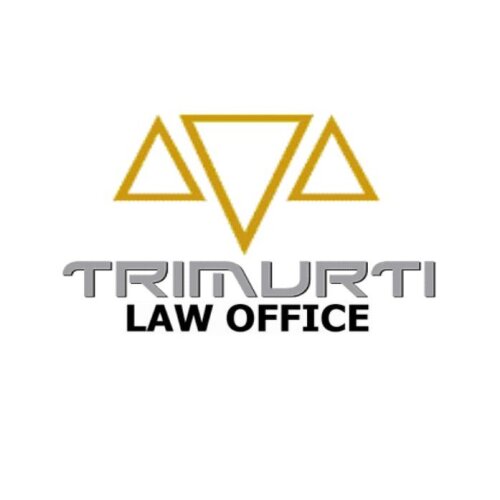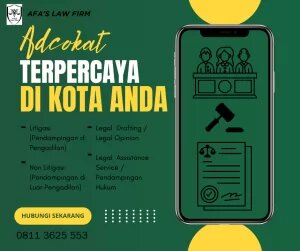Best Natural Resources Lawyers in Indonesia
Share your needs with us, get contacted by law firms.
Free. Takes 2 min.
Or refine your search by selecting a city:
List of the best lawyers in Indonesia
About Natural Resources Law in Indonesia
Indonesia is endowed with a vast and diverse array of natural resources, ranging from substantial reserves of oil, natural gas, and minerals to extensive forests, fertile lands, and abundant water resources. The nation's geography and natural wealth make it a focal point for both economic development and environmental conservation. Natural resources law in Indonesia encompasses a wide range of legal frameworks aimed at balancing economic growth with sustainable resource management, environmental protection, and socioeconomic equity.
Why You May Need a Lawyer
There are several scenarios where individuals and businesses may require legal assistance in the realm of natural resources in Indonesia:
- Acquisition of rights or licenses to explore or exploit mineral, oil, or gas resources.
- Negotiation or disputes related to land use, permits, and environmental impact assessments.
- Compliance with environmental regulations and sustainability standards.
- Resolution of conflicts between different stakeholders, such as government bodies, local communities, and corporations.
- Understanding and navigating local and national regulatory requirements and taxation laws relevant to natural resource sectors.
Local Laws Overview
The legal framework governing natural resources in Indonesia includes a combination of regulations, licenses, rights, and obligations that pertain to various sectors:
- Mining Law: Indonesia's Mining Law regulates the exploration, exploitation, processing, and transportation of minerals, ensuring benefits for both the state and local communities.
- Forestry Law: This law is designed to manage and protect Indonesia's rich forest resources, balancing conservation efforts with the sustainable use of forest products.
- Environmental Law: A comprehensive set of laws aimed at preserving environmental integrity while permitting economic activity, including requirements for environmental impact assessments.
- Oil and Gas Law: Governs the upstream and downstream activities pertaining to oil and gas resources, focusing on state control and public interest considerations.
- Water Resources Law: Establishes the framework for sustainable water management, emphasizing equitable access and usage.
Frequently Asked Questions
What is the role of the Indonesian government in managing natural resources?
The government plays a central role in regulating and managing the exploration, exploitation, and conservation of natural resources, often through specific ministries and public agencies that issue permits and enforce compliance with relevant laws.
How are natural resource-related disputes resolved in Indonesia?
Disputes are generally resolved through negotiation, mediation, or litigation processes under the relevant legislative framework. Specialized arbitration may also be a viable option for certain commercial disputes.
What permits are required for mining activities?
Specific permits such as an Exploration License and a Production Operation License are required, depending on the stage of the mining process. Additional environmental permits may also be necessary.
Are there specific laws protecting indigenous land rights?
Yes, Indonesia recognizes and protects the rights of indigenous communities under its agrarian and forestry laws, which may impact the use and management of natural resources on these lands.
Can foreign companies invest in Indonesian natural resources?
Foreign investments are permitted but often subject to various restrictions and conditions to ensure a fair distribution of benefits and compliance with Indonesian laws.
What are the penalties for violating environmental regulations?
Penalties can include fines, revocation of permits, or even criminal charges, depending on the severity and nature of the violation.
How does the government ensure sustainable resource management?
Through a combination of legislation, enforcement of environmental standards, and public policy initiatives aimed at sustainable development goals, the government seeks to promote responsible resource management.
Is there a taxation framework for resource extraction in Indonesia?
Yes, resource extraction is subject to various taxes and royalties which contribute to national and regional revenues.
What is the legal framework for renewable energy resources?
The government has set policies to encourage the development of renewable energy resources with the aim of reducing dependence on fossil fuels and promoting sustainable energy solutions.
Are environmental impact assessments mandatory?
Yes, for most major projects, an environmental impact assessment is a mandatory requirement to evaluate potential effects and propose mitigating measures.
Additional Resources
For more information and assistance, consider reaching out to the following:
- Ministry of Environment and Forestry
- Ministry of Energy and Mineral Resources
- Indonesian Forum for the Environment (WALHI)
- Local Chambers of Commerce
- Legal Aid Institutes and Environmental NGOs
Next Steps
If you need legal assistance in the field of natural resources in Indonesia, consider the following steps:
- Consult with a specialized attorney who has experience in natural resources law.
- Gather all relevant documents related to your case or interest, such as permits, maps, and agreements.
- Identify the specific issues or challenges you are facing to better focus your legal consultations and actions.
- Contact governmental agencies for guidance or to obtain required permits and assessments.
By taking these steps, you can ensure informed and effective management of your legal needs regarding natural resources in Indonesia.
Lawzana helps you find the best lawyers and law firms in Indonesia through a curated and pre-screened list of qualified legal professionals. Our platform offers rankings and detailed profiles of attorneys and law firms, allowing you to compare based on practice areas, including Natural Resources, experience, and client feedback.
Each profile includes a description of the firm's areas of practice, client reviews, team members and partners, year of establishment, spoken languages, office locations, contact information, social media presence, and any published articles or resources. Most firms on our platform speak English and are experienced in both local and international legal matters.
Get a quote from top-rated law firms in Indonesia — quickly, securely, and without unnecessary hassle.
Disclaimer:
The information provided on this page is for general informational purposes only and does not constitute legal advice. While we strive to ensure the accuracy and relevance of the content, legal information may change over time, and interpretations of the law can vary. You should always consult with a qualified legal professional for advice specific to your situation.
We disclaim all liability for actions taken or not taken based on the content of this page. If you believe any information is incorrect or outdated, please contact us, and we will review and update it where appropriate.
Browse natural resources law firms by city in Indonesia
Refine your search by selecting a city.

















